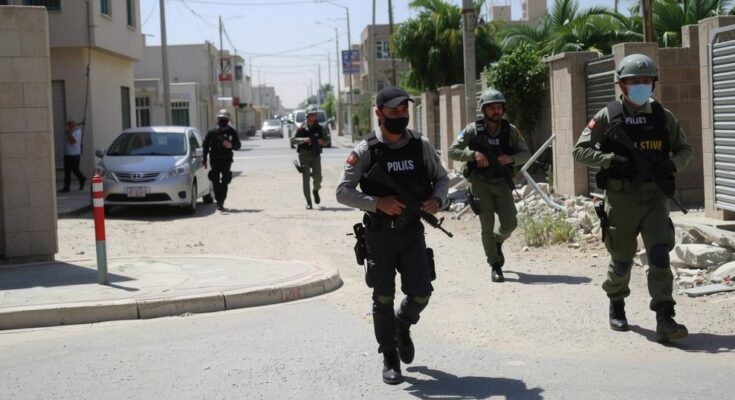Gunmen attacked a bus in the West Bank, killing three Israelis and injuring eight. Hamas praised the act but did not claim responsibility. Israeli officials condemned the attack, with the Defense Minister and Prime Minister promising to hold the attackers accountable. Violence escalates amid ongoing Israel-Gaza conflict, with significant casualties reported on both sides. U.N. officials warn of dire humanitarian conditions in Gaza as military operations continue.
On Monday, gunmen executed a brazen attack on a bus and nearby vehicles in the Israeli-occupied West Bank, resulting in the deaths of three Israelis and injuries to eight others, as reported by Israeli military and emergency services. While Hamas praised the act as a reaction to Israeli actions, it did not officially claim responsibility for the assault. As Israeli forces searched for the attackers, prominent Israeli officials condemned the violence, with Defense Minister Israel Katz directing the IDF to respond forcefully and pledge heavy repercussions for anyone linked to the attack. Prime Minister Benjamin Netanyahu emphasized the need to hold the perpetrators accountable, while calls emerged from far-right coalition members to adopt similar military measures in the West Bank as observed in Gaza.
Tensions in the West Bank have escalated following the war declaration in Gaza after the October 7 Hamas attacks, which prompted a surge in violence, resulting in significant casualties on both Israeli and Palestinian sides. The Palestinian Health Ministry reported the deaths of 818 Palestinians amid military actions since the conflict’s inception, while the UN documented at least 25 fatalities from Palestinian assaults on Israelis in the same span.
Additional developments included Israeli military operations resulting in 49 casualties and 75 injuries from airstrikes in Gaza within just 24 hours, highlighting ongoing humanitarian issues in the region, notably severe shortages in medical supplies and operational healthcare facilities amidst persistent attacks. U.N. representatives characterized markets and hospitals in Gaza as chaotic due to the overwhelming escalation of violence, emphasizing the dire humanitarian situation.
As the conflict continues, significant secondary actions ensue, such as regional diplomatic efforts by Syria’s interim government, urging the U.S. to reconsider sanctions that hinder reconstruction efforts amidst a devastating humanitarian landscape.
The backdrop of this situation is a complex and historically entrenched conflict between Israel and Palestinian factions, particularly Hamas. Events escalated dramatically after Hamas’s unexpected attack on October 7, 2023, which prompted Israel to declare war, leading to widespread violence in both Gaza and the West Bank. Over the years, tensions have been exacerbated by various factors, such as military actions, retaliatory strikes, and humanitarian crises. The conflict’s dynamics have also drawn in regional actors, creating a multi-layered geopolitical landscape within which both broad and localized conflicts unfold.
To conclude, the recent shooting in the West Bank underscores the volatile and violent nature of the ongoing Israeli-Palestinian conflict. With leaders on both sides responding to the attack, the cycle of violence appears to perpetuate, deepening the humanitarian crisis. As military actions escalate and diplomatic efforts advance, the prospect for peace remains uncertain amid profound suffering and loss of life on both sides.
Original Source: www.washingtonpost.com




